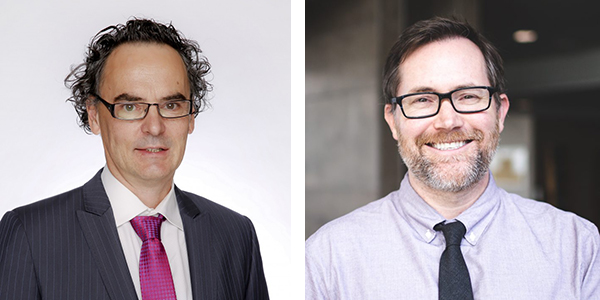
New research from York University’s Schulich School of Business shows that social media channels like Twitter can be effective tools for citizens and activists who want to hold business and political leaders more accountable.
The findings are contained in the paper, "Twitter-based social accountability callouts," which was published Jan. 12 in the Journal of Business Ethics. The paper was co-authored by Dean Neu and Gregory Saxton, professors of accounting at the Schulich School of Business.

The article uses a data set of almost 28 million tweets sent between 2016 and early 2020 to examine the phenomenon of social accountability: more specifically, the ways in which citizens and activists seek to hold business and political leaders more accountable through social media platforms such as Twitter.
The paper starts from the International Consortium of Investigative Journalists’ release of the Panama Papers in 2016 and follows Twitter participants forward in time to examine the potential of Twitter-based social accountability “callouts” to facilitate longer-term social accountability consequences. The Panama Papers opened up a wealth of previously private financial information on the tax avoidance, tax evasion and wealth-concealment activities of politicians, government officials and their allies. The data set of almost 28 million tweets that the authors use is novel in that it allows them to consider both the overall trajectory and micro details of this particular social accountability conversation.
“The ways that Twitter aggregates and channels individual voices into a collective conversation provides grassroots participants with the ability to demand social accountability in a way that makes politicians, governments and businesses stand up and take notice,” says Neu. “These characteristics have encouraged organizations as diverse as Wikileaks, the International Consortium of Investigative Journalists, USAID and the World Bank to adopt social media-based social accountability strategies.”
The study followed the original group of Twitter participants who were initially involved in the #PanamaPapers conversations in 2016 and it tracked their comments over a number of years to examine whether their interest in social accountability persisted over time and what types of topics they engaged with. The results illustrated how individual tweet-level social accountability callouts accumulated into a social accountability conversation that persisted yet changed over time. The results also showed that these callouts did not chiefly target specific politicians and their business allies, but rather were directed primarily at government as well as the participants themselves.
“A key insight for managers and business owners is that it’s important to understand the potential minefield that is social media,” says Saxton. “It’s critical for managers to recognize this risk and do their best to maintain a constant awareness of relevant social accountability discussions.”
